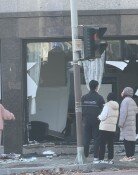Why S. Korea’s prime ministers failed to win presidency
Why S. Korea’s prime ministers failed to win presidency
Posted October. 26, 2019 07:24,
Updated October. 26, 2019 07:24
Since established in 1948, the Republic of Korea has produced 41 prime ministers. Many of them dreamed of or decided to run for presidency. However, except for former Prime Minister Choi Kyu-hah who served as acting president following the assassination of former President Park Chung-hee, no ex-prime minister has succeeded in their attempts. Still, Liberty Korea Party (LKP) Chairman Hwang Kyo-ahn, who served as prime minister during the previous Park Geun-hye administration, is currently aiming for presidency. Former Prime Ministers Chung Un-chan of the Lee Myung-bak administration, Goh Kun of the Roh Moo-hyun administration , Kim Jong-pil of the Kim Dae-jung administration, and Lee Hoi-chang of the Kim Young-sam administration had all prepared for presidential elections.
Former Prime Minister Goh Kun assumed the role of interim president following the impeachment process of President Roh Moo-hyun. He was considered one of the strongest candidates for the presidential elections, but announced that he would retire from political life in January 2007, apparently due to constant nitpicking from the ruling party’s mainstream leadership.
Meanwhile, Kim Jong-pil showed off his political influence by forming the so-called DJP coalition with the Kim Dae-jung administration. He sought for presidential office several times with the Chungcheong provinces as his stronghold, but could not achieve the dream. Lee Hoi-chang, who once was called an “imperial party leader” as he had established the Hannara Party (which is now the LKP), also ran for presidency in 1997, 2002, and 2007, but failed to win the race.
Observers say that prime ministers seem to have difficulties in successfully running for presidency as they are often used by the administrations to retrieve a situation or to turn the tide. Also, it is not easy for them to build their own force while aiding presidents for state affairs. Former Prime Minister Lee Yeong-deok under the Kim Young-sam administration had to resign due to the collapse of the Seongsu Bridge, and Yi Hong-gu also stepped down after the Sampoong Department Store collapsed. During the Lee Myung-bak administration, Chung Un-chan gained attention by pursuing a plan to relocate government complexes to Sejong City, but as the plan was voted down by the parliament in June 2010, he expressed willingness to resign.
Given the history, it is a definitely unusual phenomenon that incumbent Prime Minister Lee Nak-yeon and former Prime Minister Hwang Kyo-ahn are deemed the strongest presidential candidates in various opinion polls. “Prime ministers need to overcome a lot of ‘political mountains’ to become a presidential candidate and a president,” said Kim Hyung-joon, professor at Myongji University. “If you look at the case of ex-prime minister Lee Hoi-chang, who got closest to presidency, you would understand what’s most important is how well they can communicate with leading politicians of their party.”
Sung-Jin Park psjin@donga.com



![[김순덕의 도발] ‘李부터 연임’ 개헌, 이 대통령은 가능성을 말했다](https://dimg.donga.com/c/138/175/90/1/wps/NEWS/IMAGE/2026/01/16/133172656.1.jpg)



